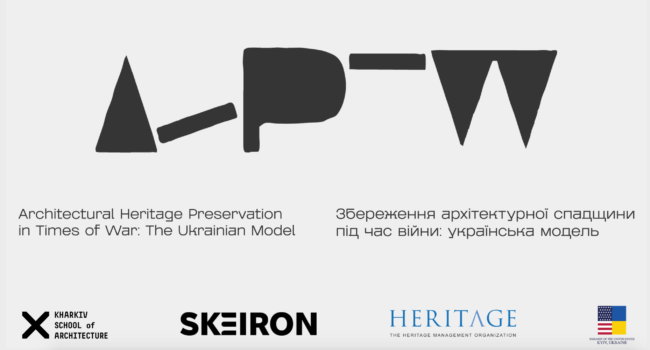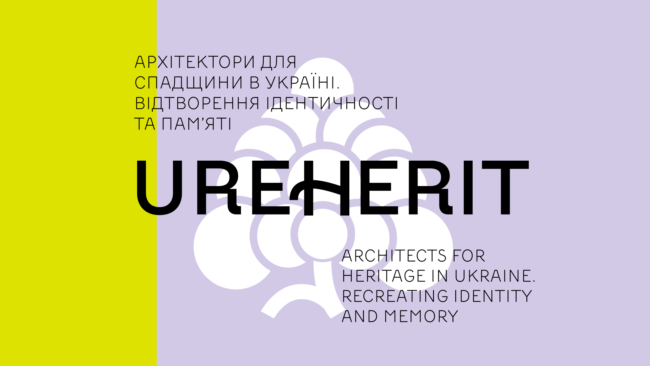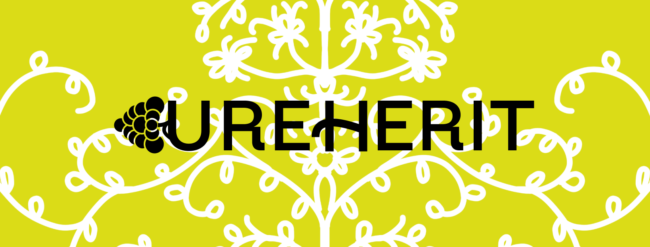Thе project Architectural Heritage Preservation in Times of War: The Ukrainian Model will contribute to the preservation and rehabilitation of the architectural heritage of Ukraine, by creating documentation of architectural monuments, strengthening the professional formation and providing on the job training to a new generation of Ukrainian conservation architects. Over the period of two academic years (four semesters), the project will deliver comprehensive courses to two groups of third year students, and to two cohorts of teachers from architectural schools across Ukraine. The courses will cover 3D documentation, architectural documentation, heritage analysis, conservation assessment, international conservation standards and local legal regulations. The teaching will combine theoretical and practical components, including on the job training, which will result in datasets usable in conservation.
This project is a collaboration between the Heritage Management Organization, the Kharkiv School of Architecture temporarily relocated to Lviv, and Skeiron LLC – an organization leading in 3D documentation of the architectural heritage of Ukraine. This collaboration simultaneously responds to the challenge of preserving Ukraine’s architectural heritage, systematically destroyed by military actions, and to qualitative challenges in architectural education, helping to form a new generation of architects capable of working with heritage in the context of post-war reconstruction.
The main outcomes will be:
3D scans and architectural documentation of up to 30 architectural monuments in Western Ukraine; training between 40 and 50 students and 20 teachers from architectural schools in Ukraine, in theory and practice of 3D documentation, architectural documentation, heritage analysis, conservation standards and conservation assessment.
The students will be able to approach heritage critically, understand historical and cultural issues, and make informed conservation decisions. The knowledge acquired by the students will be tested in the internships during which the students will produce 3D documentation, architectural documentation and conservation assessment of the buildings in Western Ukraine. The list of these buildings will be agreed with the Ministry of Culture and Information Policy of Ukraine, the Department of Historical Environment Protection and the Heritage Bureau (for the city of Lviv), as well as the Department of Cultural Heritage Protection of the Lviv Regional State Administration, and other respective authorities in other regions, as needed. It will include diverse styles (from medieval to modern) and techniques (stone, brick, wood).
The training of the teachers of architectural schools across Ukraine, will enable them to introduce architectural documentation, conservation and architectural heritage courses in their institutions. The project will provide open access materials and datasets, helping teachers to kick start architectural heritage and conservation courses.
As a part of the course, the partners will organize a series of online lectures and practical in- person training sessions with leading international architectural conservation experts, including discussions with architects from Lebanon and Iraq focusing on addressing explosion damage in buildings, as well as lectures on adaptive reuse by American and European architects. It will foster new connections between specialists in Ukraine and their international peers, integrating Ukrainian professionals into an international network of expertise and support.
The project is supported by the Public Diplomacy Section of the U.S. Embassy to Ukraine. The views of the authors do not necessarily reflect the official position of the U.S. Government.



